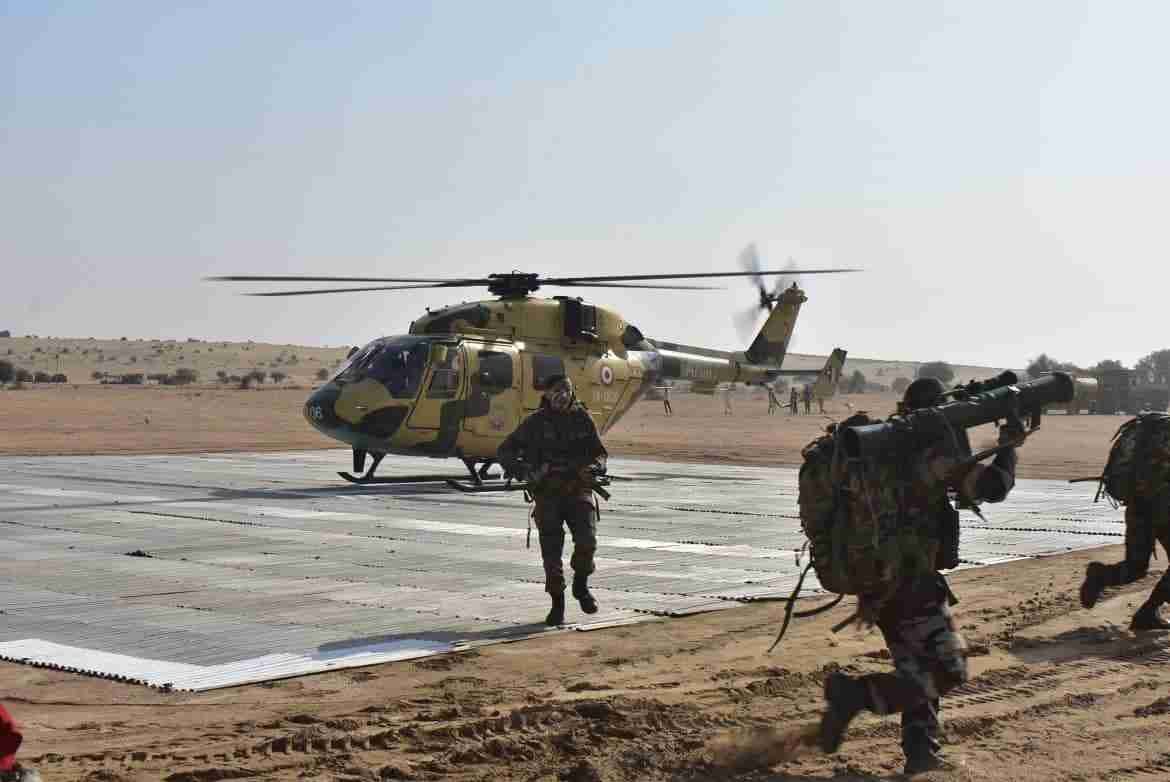At a crucial time when threats and aggressions by India’s two very inimical neighbours are being effectively dealt with by the Indian Armed Forces, nothing must be done that will seriously affect their morale. “Seriously affect,” means the kind of effect on morale which will have long term consequences, very detrimental to the nation’s security.
The first of these doubts is that the India-China so-called peace talks may lead to India agreeing to a disengagement/de-escalation/confidence-building measures which may mean that Indian Army vacates the Kailash Range, on the South Bank of Pangong Tso. While Indian Army always had the capability to occupy any kind of objective in enemy territory, ironically the Kailash Range is in our own territory but which China would absolutely not want Indian Army to occupy.
Indian army and its challenges
After seventy-odd years of accepting China’s ‘dadagiri’ (bullying) on the disputed / Chinese perception-based border or the negotiation table, Indian Army finally got the green signal to occupy some very advantageous mountain features by a good number of troops with tanks, artillery, missiles, engineers equipment etc. Overnight Indian Army gained great military advantage and a high bargaining chip for negotiations.
Former GOC-in-C, Northern Command, Lt Gen H.S.Panag, wrote in his article titled ‘If India loses grip on Kailash Range, PLA will make sure we never get it back,’ in The Statesman of November 12, 2020, that Kailash Range gives us the same strategic advantage in the Spanggur Tso-Rudok area as the PLA has in the Daulat Beg Oldie sector. He recommends that we must develop the required infrastructure to man it permanently and states, “in the event of an escalation, we must capture Black Top and the lower heights of the Kailash Range to the east. In case we have not already done so, we must also secure it in the Indus Valley.
We shamefully abandoned the Kailash Range in 1962. Today, we must not pull back from it merely to declare a political victory…What more can the Chinese want? All likely buffer zones will be on our side of the LAC where we cannot patrol, deploy or develop infrastructure. China will achieve its political aim – to secure the 1959 Claim Line and prevent the development of border infrastructure.” Panag further stressed that we must not repeat the folly to give up the Kailash Range because the PLA will make sure that we never get it back.
The other doubt that came out of the blue from India’s first Chief of Defence Staff (CDS)mooting some proposals, one of which is about reducing pensions of all ranks related to their amount of service, which caused much shock to serving and retired community of the three services and an explosion of criticism by military veterans in print, electronic and social media.
Looking ahead
On 29 October 2020, Department of Military Affairs (DMA), under CDS conveyed the intention of the government to enhance service age limits, while reducing pensions to those who seek pre-mature retirement. The first proposal concerns enhancing age limits for officers, thus doing away with re-employment.
Colonels, who post-retirement at 54, were eligible for reemployment till 58, would now serve till 57, without reemployment, Brigadiers till 58 and Major Generals till 59, an addition of one year. The full pension would be granted if service is beyond 35 years. In addition, the age limit for all personnel in logistics, technical and medical branches, to include EME, AOC and ASC for the army, has been raised to 57 years.
In the Army, premature retirement after twenty years of pensionable service is sought by officers mainly owing to not being selected for Colonel and higher ranks because of lack of vacancies.
In the Army, premature retirement after twenty years of pensionable service is sought by officers mainly owing to not being selected for Colonel and higher ranks because of lack of vacancies. The proverbial pyramid has now become an Eiffel Tower. One way of breaking this trend is by implementing non-functional up-gradation (NFU), which has been so far denied to armed forces officers.
Maj Gen Harsha Kakar (retd), in his article,‘Pension move may upset morale of armed forces,’ published by The Statesman of 10 November 2020, stated that reducing pensions implies hiding the failure of the Defence Ministry while penalising those who discovered their own avenues as an alternative to serving in disgruntlement. Reduced pensions also imply deducting what the nation owes the individual for his service. The Government must tread with care on such sensitive subjects.


